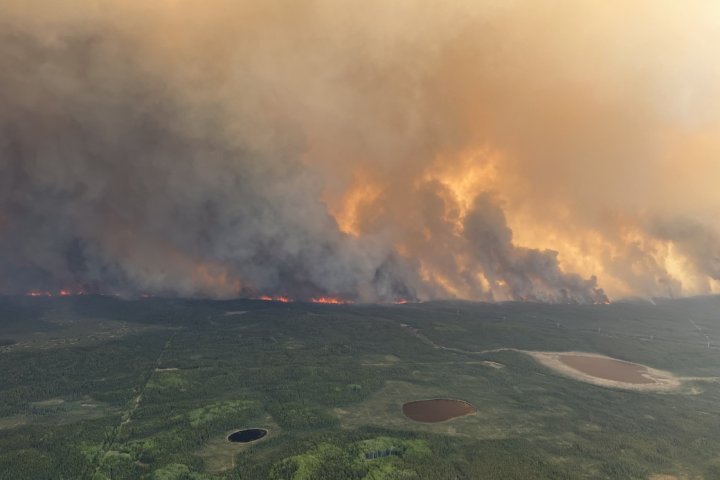Canada’s recent wildfires have not only caused widespread damage to homes and forests, but they have also had a significant impact on the health of Canadians. The thick smoke from these fires has blanketed many parts of the country, leading to concerns about air quality and potential health risks.
According to experts, the smoke from wildfires contains a variety of harmful pollutants, including carbon monoxide, nitrogen oxides, and particulate matter. These pollutants can irritate the respiratory system and worsen existing health conditions, such as asthma and heart disease. In fact, a study by the Canadian Medical Association found that the smoke from wildfires can increase the risk of hospitalizations and emergency room visits for respiratory and cardiovascular issues.
The impact of the smoke is not limited to those living in close proximity to the fires. The smoke can travel long distances, affecting air quality in cities and towns far from the actual fire sites. This was evident during the 2017 British Columbia wildfires, where the smoke reached as far as Ontario and Quebec.
In addition to physical health concerns, the smoke can also have a significant impact on mental health. The constant exposure to smoke and the threat of wildfires can cause anxiety, stress, and other mental health issues. This is especially true for those who have been evacuated from their homes or have lost their homes due to the fires.
To address these concerns, health officials are urging Canadians to take precautions and protect themselves from the smoke. This includes staying indoors as much as possible, using air purifiers, and wearing masks when going outside. It is also important for individuals with pre-existing health conditions to closely monitor their symptoms and seek medical attention if necessary.
The government has also taken steps to address the issue, such as providing funding for air quality monitoring and issuing air quality advisories in affected areas. However, some experts argue that more needs to be done, such as implementing stricter regulations on emissions and investing in wildfire prevention measures.
As the wildfire season continues, it is crucial for Canadians to stay informed and take necessary precautions to protect their health. The impact of these fires goes beyond the physical damage and extends to the well-being of individuals and communities. It is a reminder of the urgent need to address climate change and its devastating effects on our environment and health.


